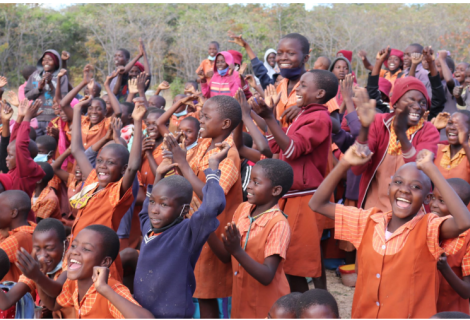RESTORING THE DIGNITY OF ADOLESCENT GIRLS IN RURAL SCHOOLS

Period poverty remains a significant issue for girls in Zimbabwe, particularly in rural areas. Many girls face challenges in accessing dignified sanitary wear due to high costs, often resorting to unhygienic alternatives that pose health risks. This lack of access leads to frequent absences from school approximately four days each month, adding up to over 40 days of missed learning annually resulting in poor academic performance.
In response, ActionAid Zimbabwe, in partnership with the Zimbabwe Family Planning Council, distributed 500 dignity kits to selected secondary schools within the Chendambuya Local Rights Program (LRP). Each kit included sanitary pads, bath soap, laundry soap, towels, toothpaste, toothbrushes, and buckets. This initiative has significantly alleviated period poverty for many rural girls.
“I was excited to receive this kit from ActionAid Zimbabwe,” said Bianca, a participant in the Child Sponsorship program. “It’s wonderful that many girls in need have received support, especially with sanitary pads. Many girls struggle during their periods and sometimes miss school. This donation will undoubtedly improve their school attendance.”
Mrs. Nyamukondiwa, a teacher working closely with adolescent girls, noted, “Menstrual periods can be challenging for young girls. Without proper menstrual pads, they often face ridicule from peers and may miss school for over five days. Seeing rural girls receive such assistance brings me great joy.”
Tinashe Sapoti, 16, shared, “Before receiving these dignity kits, some girls had to use rags during their periods, which was very uncomfortable and increased the risk of infections. The inclusion of soaps, towels, and a bucket in the kits has greatly improved our menstrual hygiene at school.”
Zimbabwe’s ongoing economic crisis, marked by high inflation, unemployment, and increased household poverty exacerbated by drought effects has worsened period poverty. With families struggling to afford basic necessities, including food, there is an urgent need for resources to provide sanitary materials and hygiene education to girls and young women across the country.